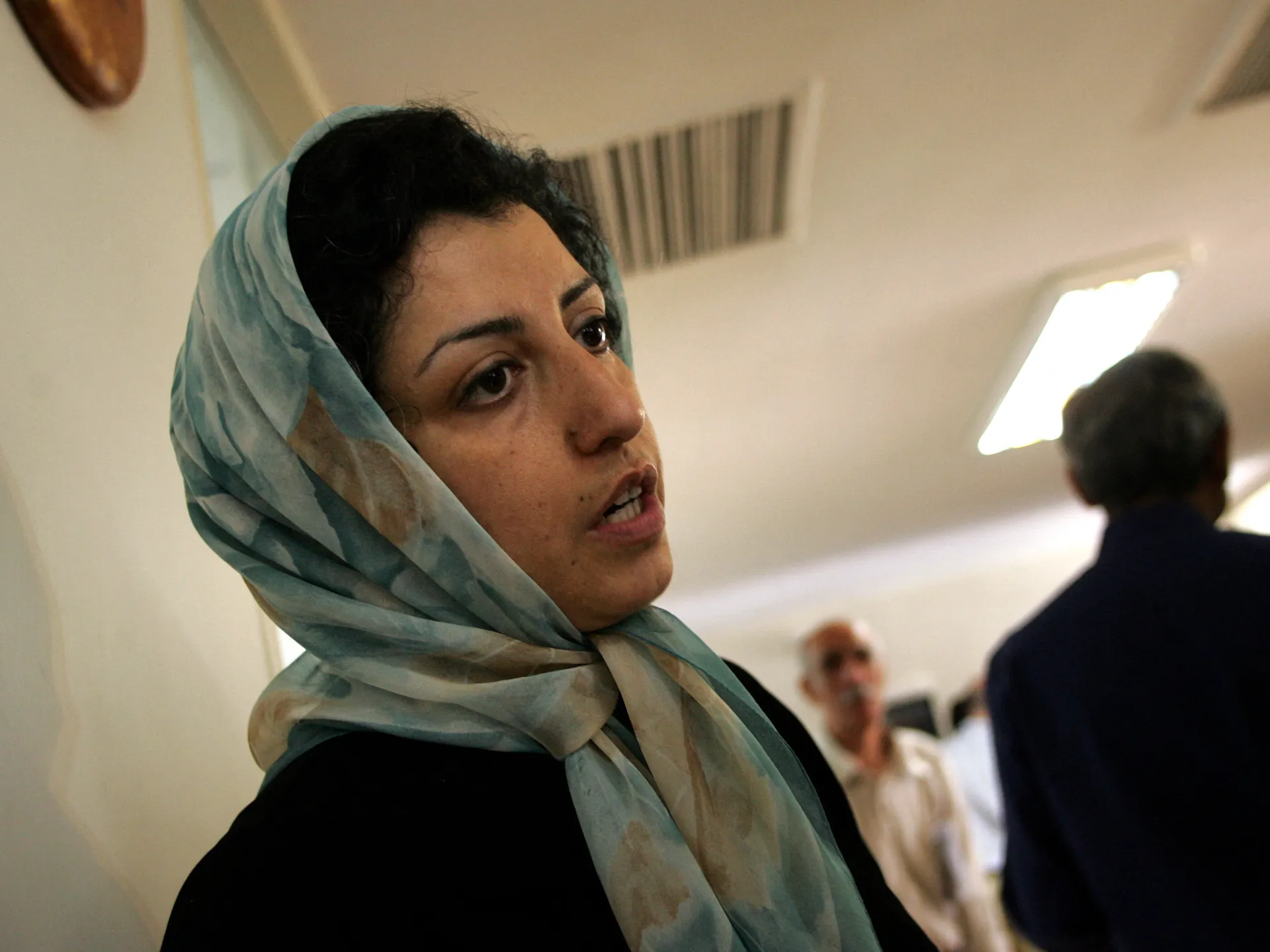Iran sentences Nobel laureate Mohammadi to seven more years in prison | Civil Rights News
Women’s rights activist Mohammadi was arrested in December while attending a memorial ceremony in Mashhad.
Published On 8 Feb 2026
Iranian human rights activist and 2023 Nobel Peace Prize laureate Narges Mohammadi has been sentenced to more than seven years in prison, according to her lawyers and a group that supports her.
Mohammadi, 53, was on a week-long hunger strike that ended on Sunday, the Narges Foundation said in a statement. It said Mohammadi told her lawyer, Mostafa Nili, in a phone call on Sunday from prison that she had received her sentence on Saturday.
Recommended Stories
list of 3 itemsend of list
“She has been sentenced to six years in prison for gathering and collusion to commit crimes,” Nili told the AFP news agency.
She was also handed a one-and-a-half-year prison sentence for propaganda activities and is to be exiled for two years to the city of Khosf in the eastern province of South Khorasan, the lawyer added.
She also received a two-year ban on leaving the country, according to the report.
Nili said the verdict was not final and could be appealed, expressing hope that the activist could be temporarily “released on bail to receive treatment,” due to her health issues.
Mohammadi had on February 2 begun a hunger strike to protest the conditions of her imprisonment and the inability to make phone calls to lawyers and family.
“Narges Mohammadi ended her hunger strike today on its 6th day, while reports indicate her physical condition is deeply alarming,” the foundation said.
Mohammadi told Nili she was transferred to the hospital just three days ago “due to her deteriorating health”, it added.
“However, she was returned to the Ministry of Intelligence’s security detention centre in Mashhad before completing her treatment,” the foundation said.
“Her continued detention is life threatening and a violation of human rights laws.”
Mohammadi is the second Iranian woman to win the Nobel Peace Prize after Shirin Ebadi won the award in 2003 for her efforts to promote democracy and human rights.
A prominent writer and journalist, Mohammadi serves as deputy director of the Defenders of Human Rights Center (DHRC), an organisation long dedicated to defending political prisoners and promoting broader human rights reforms in Iran. Beyond her advocacy for gender equality, she campaigns vigorously against the death penalty and corruption.
Her 20-year fight for women’s rights made her a symbol of freedom, the Nobel Committee said in 2023.
Mohammadi was arrested on December 12 after denouncing the suspicious death of lawyer Khosrow Alikordi.
Prosecutor Hasan Hematifar told reporters then that Mohammadi made provocative remarks at Alikordi’s memorial ceremony in the northeastern city of Mashhad and encouraged those present “to chant norm-breaking slogans” and “disturb the peace”.
